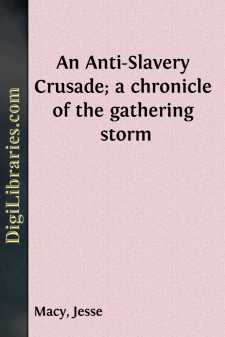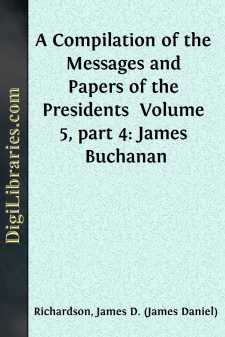History
- Africa 30
- Americas (North Central South West Indies) 50
- Ancient 68
- Asia 58
- Australia & New Zealand 8
- Canada 41
- Caribbean & West Indies 1
- Civilization 20
- Eastern Europe 12
- Europe 310
- Expeditions & Discoveries 60
- General 77
- Historical Geography 1
- Jewish 9
- Latin America 3
- Medieval 8
- Middle East 13
- Military 248
- Revolutionary 8
- Study & Teaching 5
- United States
- Western Europe 56
- World 13
United States Books
Sort by:
CHAPTER I. THE INRUSH OF SETTLERS, 1784-1787. At the beginning of 1784 peace was a definite fact, and the United States had become one among the nations of the earth; a nation young and lusty in her youth, but as yet loosely knit, and formidable in promise rather than in actual capacity for performance. The Western Frontier. On the western frontier lay vast and fertile vacant spaces; for the Americans...
more...
by:
John Moody
CHAPTER I. A CENTURY OF RAILROAD BUILDING The United States as we know it today is largely the result of mechanical inventions, and in particular of agricultural machinery and the railroad. One transformed millions of acres of uncultivated land into fertile farms, while the other furnished the transportation which carried the crops to distant markets. Before these inventions appeared, it is true,...
more...
by:
John L. Cotter
Part One Exploration: The Ground Yields Many ThingsByJohn L. CotterSupervising Archeologist, Colonial National Historical Park“As in the arts and sciences the first invention is of more consequence than all the improvements afterward, so in kingdoms, the first foundation, or plantation, is of more noble dignity and merit than all that followeth.”—Lord BaconIn the summer of 1934 a group of...
more...
by:
Joseph A. Seiss
LUTHER AND THE REFORMATION. A rare spectacle has been spreading itself before the face of heaven during these last months. Millions of people, of many nations and languages, on both sides of the ocean, simultaneously engaged in celebrating the birth of a mere man, four hundred years after he was born, is an unwonted scene in our world. Unprompted by any voice of authority, unconstrained by any...
more...
CHAPTER I. SOME men choose to live in crowded cities;—others are pleased with the peaceful quiet of a country farm; while some love to roam through wild forests, and make their homes in the wilderness. The man of whom I shall now speak, was one of this last class. Perhaps you never heard of Daniel Boone, the Kentucky rifleman. If not, then I have a strange and interesting story to tell you. If, when...
more...
PREFACE The present work concludes the series of "The Influence of Sea Power upon History," as originally framed in the conception of the author. In the previous volumes he has had the inspiring consciousness of regarding his subject as a positive and commanding element in the history of the world. In the War of 1812, also, the effect is real and dread enough; but to his own country, to the...
more...
by:
Jesse Macy
CHAPTER I. INTRODUCTION The Emancipation Proclamation of President Lincoln marks the beginning of the end of a long chapter in human history. Among the earliest forms of private property was the ownership of slaves. Slavery as an institution had persisted throughout the ages, always under protest, always provoking opposition, insurrection, social and civil war, and ever bearing within itself the seeds...
more...
James Buchanan James Buchanan was born near Mercersburg, Pa., April 23, 1791. His father, James Buchanan, a Scotch-Irish farmer, came from the county of Donegal, Ireland, in 1783. His mother was Elizabeth Speer. The future President was educated at a school in Mercersburg and at Dickinson College, Pennsylvania, where he was graduated in 1809. Began to practice law in Lancaster in 1812. His first public...
more...
CHAPTER I. Character of a City illustrated by Riots.—New Material for History ofDraft Riots.—History of the Rebellion incomplete without History ofthem.—The Fate of the Nation resting on the Issues of the Struggle in NewYork City.—The best Plan to adopt for Protection against Mobs. The history of the riots that have taken place in a great city from its foundation, is a curious and unique one,...
more...
by:
William Still
THE UNDERGROUND RAILROAD * * * * * SETH CONCKLIN. In the long list of names who have suffered and died in the cause of freedom, not one, perhaps, could be found whose efforts to redeem a poor family of slaves were more Christlike than Seth Concklin's, whose noble and daring spirit has been so long completely shrouded in mystery....
more...











